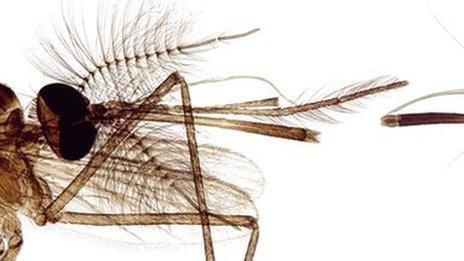Australia trial for GM fruit fly
- Published
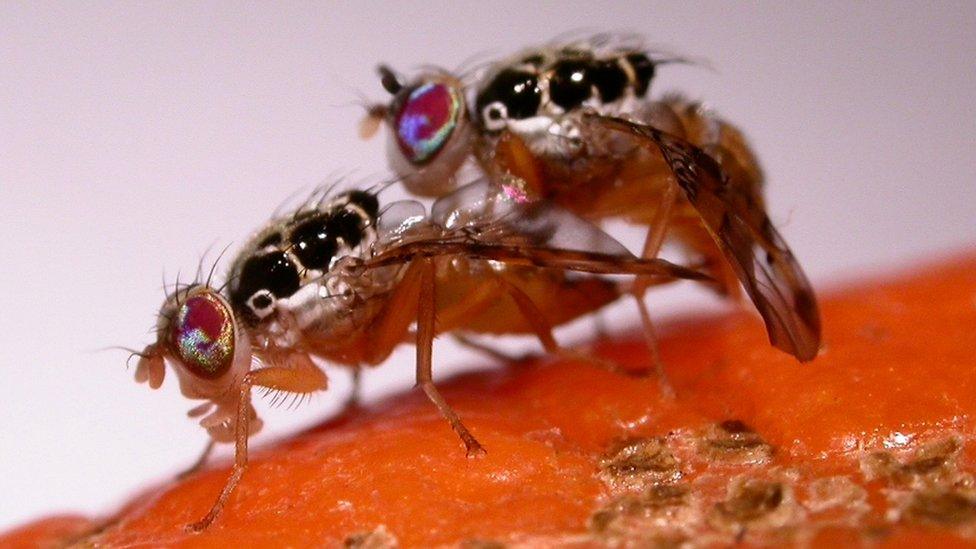
Australia will carry out trials of a genetically modified insect to see if it can control a destructive crop pest.
The engineered Mediterranean fruit flies possess a gene that prevents female flies from reaching adulthood.
When released into the environment, they mate with wild members of the same species and pass on the gene to their offspring, which die before they can cause damage to crops.
The flies have been produced by the British-based company Oxitec.
This invasive species causes millions of dollars in damage to Australian crops each year.
The Department of Agriculture and Food in Western Australia (DAFWA) has now announced it will conduct an indoor assessment of the engineered fruit flies.
Eggs were imported from the UK and reared at DAFWA research facilities. Their potential for pest control will now be assessed in glasshouse trials.
In Western Australia, the Mediterranean fruit fly (Ceratitis capitata), also known as the Medfly, is a major problem for commercial orchards and householders.
It feeds on more than 250 types of fruit, including citrus, apricots, nectarines, peaches, mangoes, apples and pears.
The female medfly "stings" fruits as she lays her eggs, making them vulnerable to infection and rot.
A decision last year by Australian regulators to phase out the organophosphate insecticide fenthion has prompted a search for alternative methods of controlling the fruit pest.
Oxitec male flies are released to mate with wild female flies. When they do, they pass on a "self-limiting" gene which prevents female offspring from reaching adulthood.
This prevents the females from stinging fruit crops, or reproducing, thus shrinking populations of the fly in the release area.
"We need to evaluate new tools that could become a helpful part of integrated pest management practices," said Dr Neil Morrison, research lead for agricultural pest control at Oxitec.
The principles used to create the GM medfly have already been trialled against dengue fever-carrying mosquitoes in the Cayman Islands, Panama and Brazil.
A genetically modified diamondback moth - another crop pest - is currently undergoing trials in the US.
Releases of Oxitec insects have been criticised by groups opposed to genetic modification. Nevertheless, the Oxford-based company was bought up by US biotechnology firm Intrexon in a $160m deal.

More from Science/Environment News
The use of genetically engineered animals could revolutionise areas of public health and agriculture, according to advocates. But is the world ready for modified mosquitoes and GM salmon?
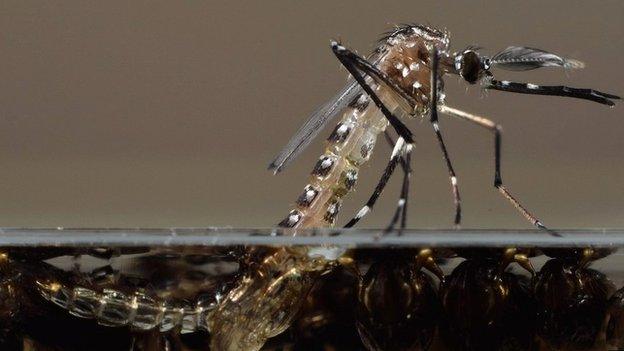

Follow Paul on Twitter, external
- Published19 November 2015
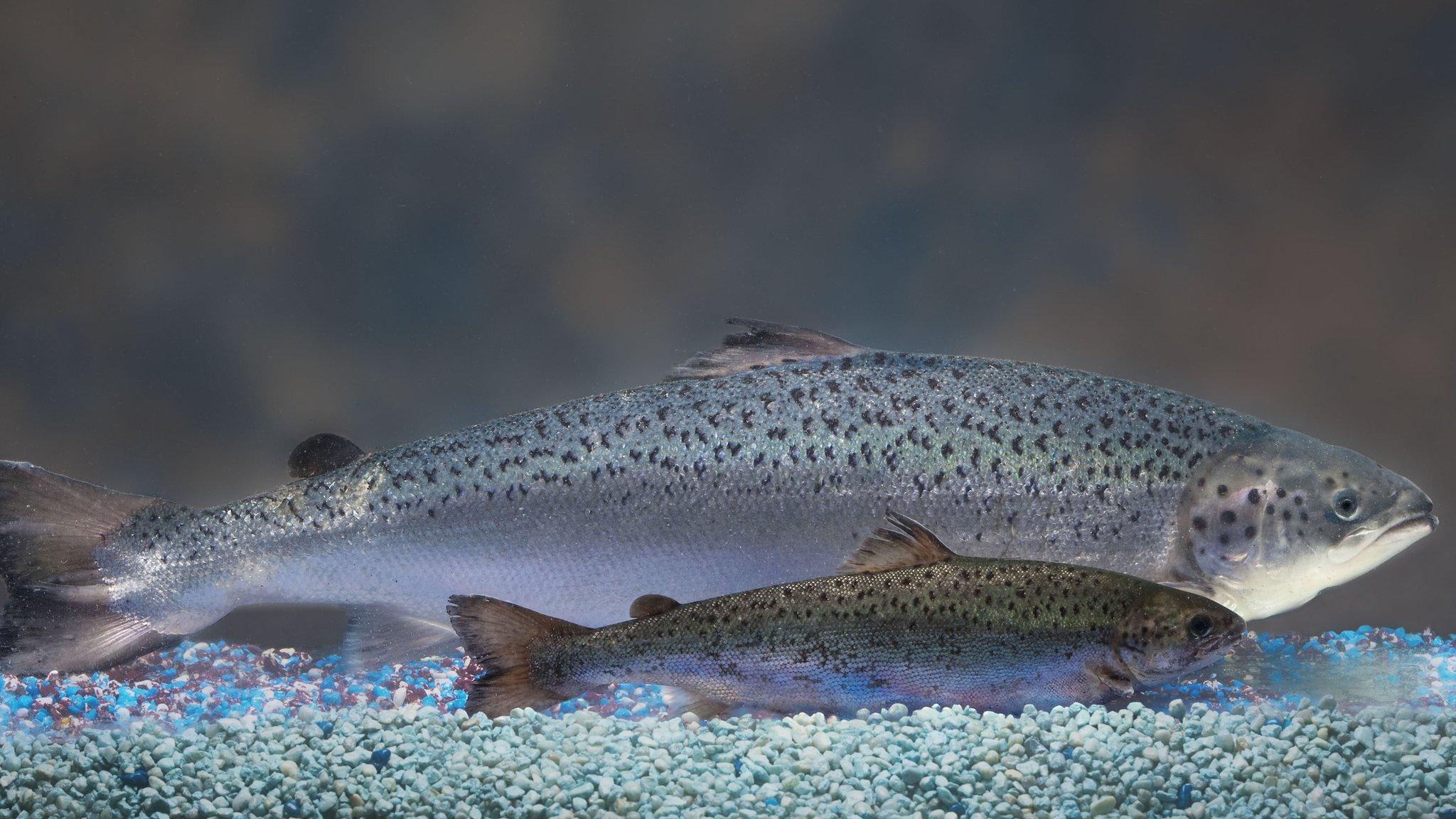
- Published16 July 2015
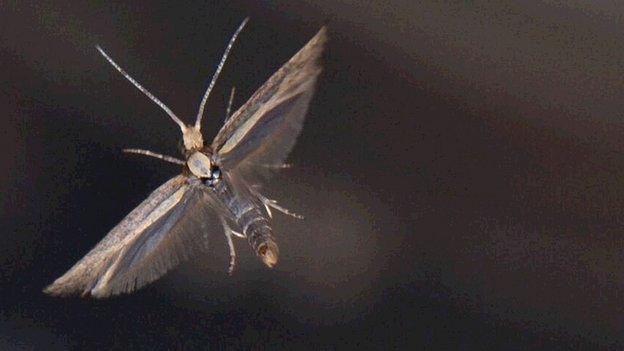
- Published25 February 2015
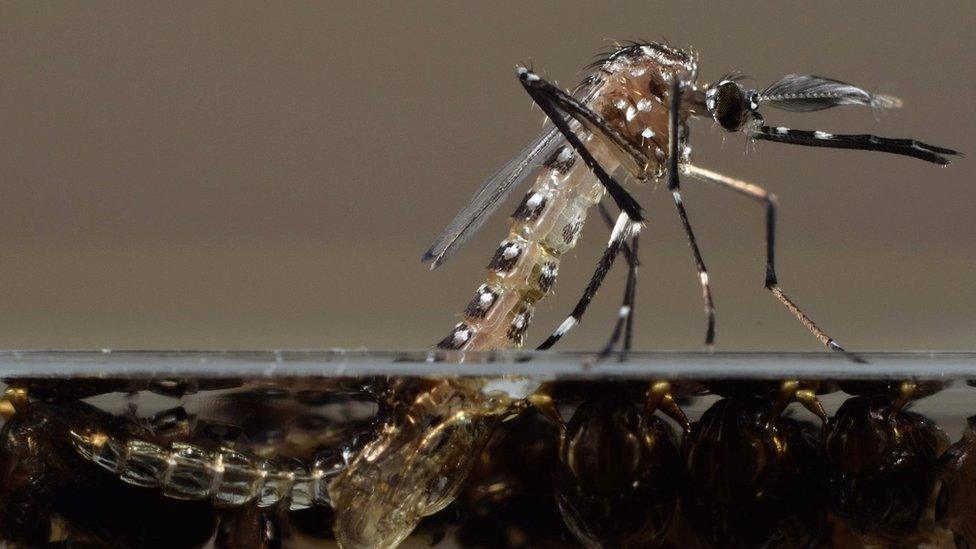
- Published10 June 2014
